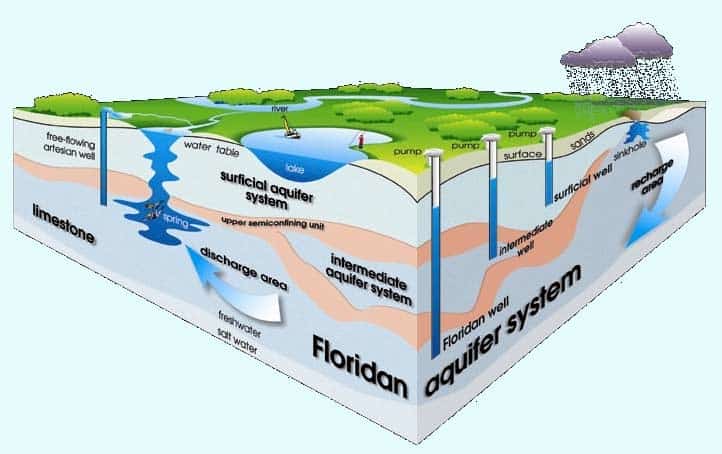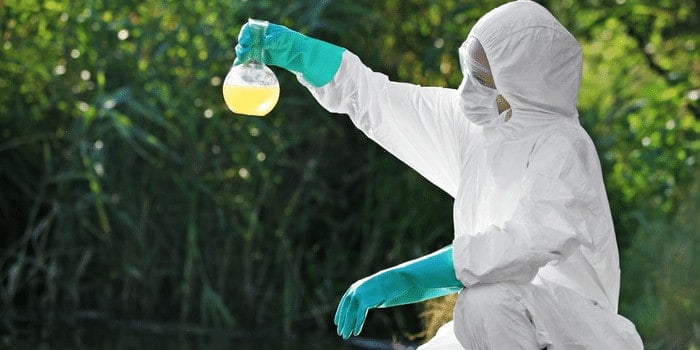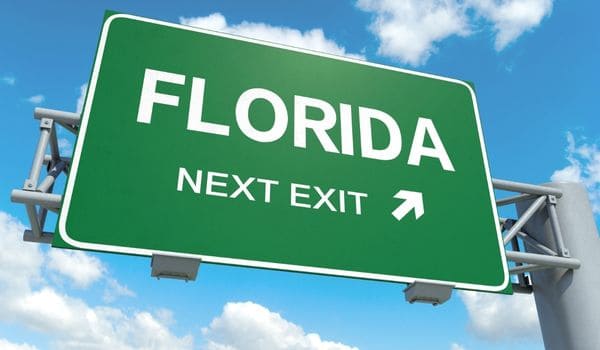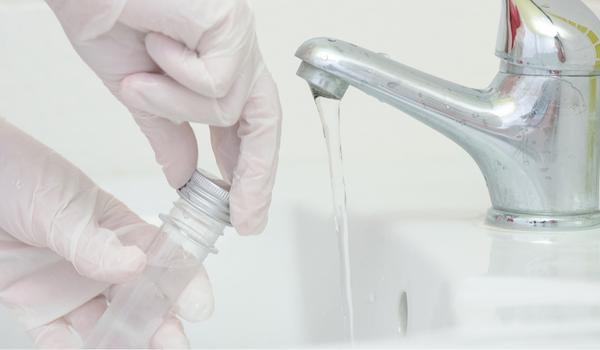Florida is known for sunshine, sand, and some of the strangest headlines in the news — but when it comes to drinking water, it’s not always something to toast with.
From funky smells to a reputation for hidden contaminants — the state’s tap water stirs up more questions than answers. So… is it safe to drink straight from the faucet, or should you stick to bottled?
Here’s what you should know before you fill your next glass.
🔑 Key Takeaways
- 🌴 Florida’s tap water meets federal safety standards, but that doesn’t mean it’s free from concerning contaminants.
- 👃 Common complaints about smell or taste usually stem from sulfur, algae blooms, or old infrastructure — not dangerous toxins.
- 💧 Some cities (like Miami and Tampa) have water with elevated levels of byproducts like trihalomethanes and haloacetic acids.
- 🚰 Using a water filter can drastically reduce exposure to PFAS, lead, nitrates, and more — especially if you’re in an older home.
- 🧪 If you’re unsure what’s in your water, testing is the only way to know for sure — especially if you’re on a private well.
😖 Why Does It Taste (and Smell) So Bad?
Florida’s tap water gets a bad rap — and honestly, it’s not all hype. While the water is generally considered safe, the experience of drinking it? That’s another story.
Here’s what’s behind those funky flavors and off-putting odors:

☀️ Heat & Algae Blooms
High temps in the Sunshine State fuel algae growth in reservoirs and lakes. Some algae are harmless, but when blooms hit, they can release compounds that smell swampy — like wet grass or fertilizer. Bonus gross: treatments for algae often involve extra chlorine, which just adds to the chemical taste.
📈 Too Many People, Not Enough Water
Florida’s population is booming. As more people move in and drill wells, groundwater levels drop — and that means the same volume of water contains more concentrated minerals like sulfur. That “rotten egg” smell? It’s likely hydrogen sulfide from overtaxed aquifers.
🌍 It’s the Geology, Too

Florida’s flat terrain and porous limestone mean water sources are interconnected and vulnerable to runoff. Decaying plant material (especially in swampy areas) can give water a yellow tint and a musty, tannin-heavy flavor. Totally safe, but not exactly refreshing.
Photo credit: University of Florida
🧪Is Florida’s Tap Water Safe?

Here’s the straight answer: Yes — by EPA standards, Florida’s tap water is safe. Every public water system in the state must meet federal regulations under the Safe Drinking Water Act. And for the most part, they do.
But (and you knew there was a “but”)…
Just because water is legal to drink doesn’t always mean it’s ideal — especially if you’re sensitive to certain contaminants or live in an area with aging pipes.
💡 Fun fact: The Environmental Working Group (EWG) found that many Florida water systems still contain trace amounts of chemicals like PFAS, trihalomethanes, nitrates, and arsenic — all technically legal, but not exactly welcome guests in your water glass.
Let’s break it down:
- The EPA sets limits for dozens of contaminants — things like lead, radium and chlorine byproducts.
- The EWG argues many of those limits are outdated and not in line with the latest health research.
- Florida residents? Stuck in the middle. The water might be compliant, but that doesn’t mean you shouldn’t take a closer look — especially if you’re immunocompromised, pregnant, or raising young kids.
🚨 Private well owner? Different ballgame. You’re responsible for testing and treating your own water. More on that shortly.
🚱 What’s Actually in Florida Tap Water?
Florida tap water is technically safe — but that doesn’t always mean it’s free of health concerns. Several contaminants found across the state exceed modern safety guidelines — even if they fall under federal limits. If you want peace of mind, it’s worth seeing what might be lurking in your local supply.
| Contaminant | Health Concern | Notes |
|---|---|---|
| Trihalomethanes (TTHMs) | Potential carcinogen (bladder, skin) | Byproduct of chlorine disinfection |
| Haloacetic Acids (HAAs) | Possible birth defects, cancer | Forms when chlorine reacts with organic matter |
| Arsenic | Long-term toxicity, cancer risk | Found in groundwater and well systems |
| Radium | Bone cancer, birth defects | Occurs naturally in Florida’s bedrock |
| Chromium-6 | Linked to organ damage and cancer | Often from industrial runoff |
| PFAS (“Forever Chemicals”) | Thyroid, liver, and reproductive issues | Extremely persistent in the environment |
| Nitrates | Risk to infants (“blue baby” syndrome) | Common in farming and fertilizer runoff |
| Lead | Neurotoxic, especially for children | From older plumbing and service lines |
💡 Pro Tip: Contaminant levels can vary by ZIP code, especially in older communities or areas near farms and industrial sites. Use the EWG Tap Water Database to check your local supply — or better yet, test your water directly.
🌴 How Does Water Quality Vary Across Florida?

Water quality in Florida varies by location — and while it’s all regulated under state and federal law, what comes out of the tap can still look (and taste) very different depending on where you live.
Let’s take a quick tour through a few major metro areas, based on the EWG’s most recent data:
📍 Jacksonville
Recent tests show Jacksonville’s water meets federal standards — but that doesn’t mean it’s squeaky clean. Five contaminants exceeded EWG’s health guidelines, including:
- Arsenic
- Radium
- Haloacetic acids
- Total trihalomethanes
💡 Note: Arsenic levels were lower than the national average but still above California’s public health goal of 0.004 ppb.
📍 Tampa
Serving nearly 750,000 people, Tampa’s water supply tested positive for 18 total contaminants — with six above EWG’s safety benchmarks:
- Arsenic
- Chromium-6
- Radium
- Haloacetic acids
- Total trihalomethanes
🔍 Heads-up: Arsenic levels here were higher than in Jacksonville — something to consider if you’ve got little ones at home.
📍 Palm Beach
Palm Beach County’s water serves close to 600,000 residents. Test results flagged five concerning compounds:
- Chlorate
- Chromium-6
- Haloacetic acids
- Total trihalomethanes
💧 Pro Tip: This region is also known for having some of the hardest water in Florida — around 19 grains per gallon. It’s not harmful, but it can make your tap water taste bitter and wreak havoc on pipes and appliances.
📍 Miami
The Miami-Dade system is one of the biggest in the country — and it came back with eight contaminants above recommended health levels:
- Arsenic
- Chromium-6
- PFOS/PFOA
- Radium
- Haloacetic acids
- Total trihalomethanes
🌊 Worth knowing: Local well water often passes through porous limestone, which means it’s high in sulfur and tannins. Safe to drink, but don’t be surprised if it’s a bit yellow with a hint of “rotten egg.”
💧 What Can You Do If Florida Water Isn’t Up to Par?

Even if the state says your tap water meets federal standards, that doesn’t mean it’s free from issues. The good news? You have options — and they don’t involve drinking out of plastic bottles forever.
Florida has been making slow but steady progress on improving infrastructure, but while that plays out, here are a few smart steps you can take right now:
🏠 Consider a Water Filter That Matches Your Needs
The type of filter you need depends on what’s in your water. For example:
- Live near golf courses or farms? Nitrates might be an issue — reverse osmosis can handle that.
- Tired of the sulfur smell? A whole-house system with a carbon filter or iron/sulfur filtration stage helps.
- Worried about PFAS or disinfection byproducts? Look for filters certified to reduce them — many RO and multi-stage systems are up to the task.
Whether you rent or own, there’s a solution that fits:
- Whole-house filters tackle taste, odor, and health-related concerns across every tap.
- Point-of-use filters (like under-sink RO or pitchers) are affordable ways to clean up your drinking water without a big install.
💡 Pro Tip: If you’re in a high-risk area for airborne toxins like algae bloom vapors, a whole-house filter is your best bet.
💸 Skip the Bottled Water Habit
Yes, bottled water might seem like a quick fix — but it’s expensive, environmentally damaging, and not necessarily safer. A one-time investment in a reliable filtration system often pays for itself in less than a year.
🛠️ Need Help Picking a Filter?
If you’re not sure what system suits your water quality or budget, check out SpringWell — they’re based in Daytona Beach and know Florida water inside and out. Check them out here.
🧪 Should You Test Your Tap Water?

If you’re on a private well, the answer is an easy yes — you’re on your own. No city agency is monitoring your water quality. The Florida Department of Health recommends testing for nitrates and bacteria at least once a year, and they offer budget-friendly kits for around $20. But that’s just a starting point.
Municipal water users? You’ve got a leg up — public systems test daily for dozens of regulated contaminants. Still, those reports only reflect water quality at the treatment plant — not what might pick up along the way to your faucet.
A few reasons to test even if you’re on city water:
- You live in an older home with pipes installed before the mid-1980s (possible lead risk).
- Your water smells funny, looks discolored, or has changed recently.
- You just want peace of mind — or you’re planning to install a filter and want to tailor it to what’s actually in your water.
💡 Pro Tip: Testing is especially useful if you’re deciding between whole-house and point-of-use filters. It’ll help you avoid over- or under-buying.
🔍 Which Water Test Kit Is Best?
We recommend Tap Score by SimpleLab — it’s one of the easiest and most accurate ways to get a lab-analyzed breakdown of your water. Choose from tests for city or well water, or go custom based on your concerns.
If you’re working with a trusted local lab or planning to consult a pro, great — just make sure they’re certified and provide actionable results (not just numbers without context).
🧠 Final Thoughts
Florida’s water has a reputation — and not always the good kind. From musty smells to off-putting flavors and a long list of contaminants — it’s no wonder people are asking questions.
The truth? Most of the state’s tap water meets federal safety standards. But that doesn’t always mean it’s free from potential health concerns — especially if you’re drinking it daily over a lifetime.
💡 Bottom line: Safe doesn’t always mean ideal. If your water tastes weird, smells off, or you’re just not comfortable drinking it — trust your gut.
✅ What you can do:
- Test your water — whether you’re on a well or city supply.
- Check local reports and stay updated on what’s in your region.
- Invest in a good filter — even a simple pitcher can help with taste, while under-sink or whole-house systems tackle more serious stuff.
Clean water shouldn’t be a luxury — and with the right tools, it doesn’t have to be.
 108 people found this helpful. Was this guide helpful to you?
108 people found this helpful. Was this guide helpful to you? 


